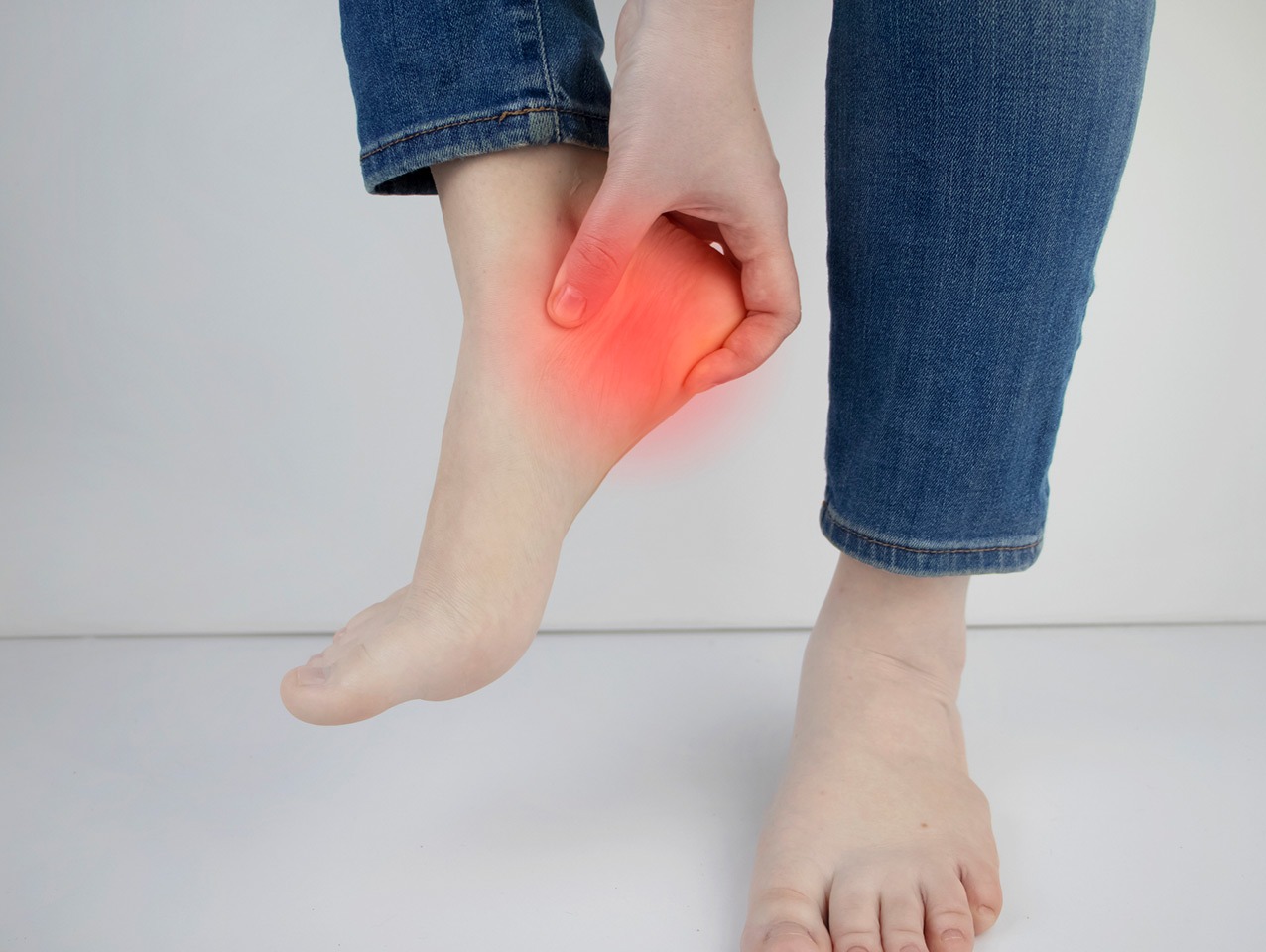If you’ve ever suffered the pain of plantar fasciitis, you will know how it impacts everyday life, making walking uncomfortable or sore. Shockwave therapy for plantar fasciitis is an effective, non-invasive treatment we use in our Honiton, Tiverton, Wellington and Cullompton clinics. In this blog, we will explore the symptoms and causes of plantar fasciitis and explain how we treat this painful condition.
What are the symptoms of plantar fasciitis?
The typical pain of plantar fasciitis is a stabbing pain in the bottom of your foot, near the heel. Commonly, the pain is worse on first movement after resting or sleeping, though it can feel worse after a long period of standing.
What causes plantar fasciitis?
This condition happens after straining the band of tissue that connects your heel bone to your toes. This area is called the plantar fascia, and its function is to support the arch of the foot and to absorb shock.
Tension and stress on this fascia can result in small tears. Repeated stretching and tearing of the facia can irritate or inflame it this tissue.
It’s most common in those aged between 40 and 60. While it’s not always clear what has triggered it, some of the common causes we see in our clinic include
- Recent periods of exercise on a hard surface
- Exercise with a tight calf or heel
- Recent increase in walking or running
- Wearing shoes with inadequate cushioning or support
- Being overweight
- Extended periods of standing
- Poor foot biomechanics
- Fallen arches
It’s important to treat plantar fasciitis, because it can develop into chronic heel pain that impacts your quality of life and your mobility. If you have chronic pain in your foot, you’re likely to compensate by changing how you walk. This in turn can lead to problems in your knees, hips or back.
How is plantar fasciitis diagnosed?
Our osteopaths will physically examine your foot and ask you about your symptoms, including location and when it’s worse or better. They will check your level of pain by fently pressing on your plantar fascia. A healthcare provider will diagnose plantar fasciitis with a physical exam.
How our osteopaths treat plantar fasciitis
Our team of osteopaths are skilled in assessing the alignment of your musculoskeletal system. They will identify any underlying causes of plantar fasciitis and offer advice and a program of exercises to correct any imbalances. This holistic approach helps to prevent further injury and recurrence of the condition.
Here in our Honiton clinic we also use shockwave therapy to safely, swiftly and effectively bring pain relief without the need for medication or surgery.
Shockwave therapy for plantar fasciitis
Shockwave therapy is a very effective and advanced treatment approach for plantar fasciitis. Here at Osteo and Physio, shockwave therapy is delivered through a specialist, handheld device which directs acoustic sound waves through the skin into the inflamed tissues.
These high-powered mechanical waves cause collagen synthesis, new blood vessel formation, increased healing and cellular metabolism.
The use of shockwave therapy for plantar fasciitis is well supported by the NICE guidelines. A growing body of research demonstrates that shockwave therapy is highly effective at successfully treating plantar fasciitis up to 88% of the time, even when it is a chronic condition.
Book your osteopathy appointment now
It couldn’t be easier to book your shock wave appointment with Osteo & Physio! Book a session iin our Wellington, Cullompton, Tiverton or Honiton clinics via our app, website or call our friendly reception team on 0345 5577788.

